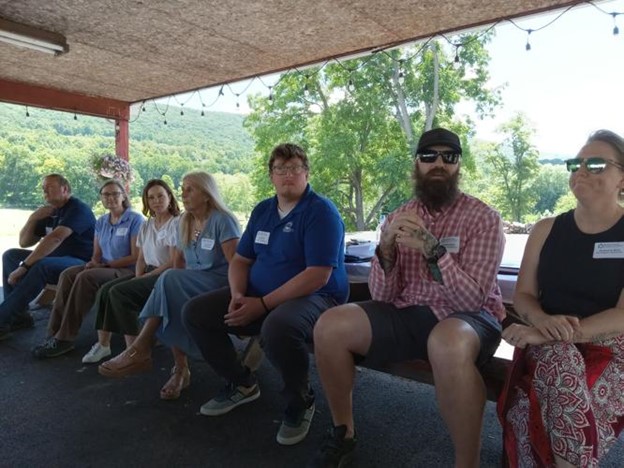By HEATHER KOONTZ Gazette Staff Writer – June 28, 2024.
Outdoor recreation is a $17 billion per year boon to the state, and a panel of local businesspeople joined a state expert to discuss benefits and inhibitors to growing that industry locally.
Housing issues, the difficulties in finding employees, and the benefits the outdoors can provide in business development were topics touched on by the panel during the two-hour presentation.
Nathan Reigner state director of outdoor recreation, said spending time in nature provides a wealth of benefits beyond just the physical and mental health boons, including bonding with friends and family, rising to challenges, and learning about yourself and the world around you.
From an economic standpoint, Reigner said, “communities with a high quality of life are communities that are growing.”
Population loss in rural areas affects the entire state, including losing representation in Washington, D.C., so rural communities should be investing in retaining and attracting new businesses, he explained.
An outdoor business alliance that would integrate business and outdoor recreation in the state is in the works, Reigner said, so “we can unlock this industry that’s been growing ferally.”
The outdoor recreation industry includes producers, providers, and professionals — not just kayak retailers and fishing guides, but also planners, designers, health food producers, hospitality specialists and event planners, Reigner said.
“Our challenge is trying to be as synergistic with other businesses in the area as we can,” according to panelist Sam Wiley from Blue Knob All Seasons Resort.
The industry also relies on rolling with changes, according to Juniata Trading Co. owner Blaine Smith.
“Hunting is on the decline,” he noted. “For us to survive, we have to transition to outdoor recreation.”
However, a lack of affordable housing and difficulties in finding employees can stymie even the savviest business owner.
“It’s a huge need,” said Jen Marsh, Bedford County Development Association vice president.
Marsh is working with a team to conduct a housing study to see what Bedford County would look like in five years with or without additional housing.
The issue, according to the panel, is not a lack of land, but a lack of infrastructure, such as public water and septic, and developers willing to invest in the area.
“We have lots of land but you can’t put in housing if there’s not the infrastructure to support it,” Marsh explained. Government investment in such systems could help community growth, the panelists agreed.
Businesses suffer when they are trying to attract talent but can’t because there is nowhere for the family to relocate in the area, according to the group.
Audience member Jim Wehling said 85% of the residential housing in Bedford Borough was built prior to 1970, and there is little multi-residential housing available.
Smith said the inability to find employees can be a detriment to business. An indoor archery facility run by Juniata Trading Co. is only opened part time now, due to a lack of help, he said.
Showcasing the region and all it has to offer can help when courting potential employees to move to the area, but once an individual is here, they need a place to stay, panelists agreed.
Reigner said it is important for businesses to present a unified voice to Harrisburg about their needs and encouraged individuals to look to outdoor recreation as an industry worth investing in for future growth.
The discussion was hosted as part of the Bedford County Chamber of Commerce’s Government, It’s Your Business speaker series Thursday, at the pavilion at the Bedford Elks Country Club. The next speaker in the series will be U.S. Rep. Dr. John Joyce on Friday, July 26, at 7:30 a.m. at the Bedford American Legion.
Contact Heather Koontz at hkoontz@bedfordgazette.com; 814-623-1151, ext 150.

